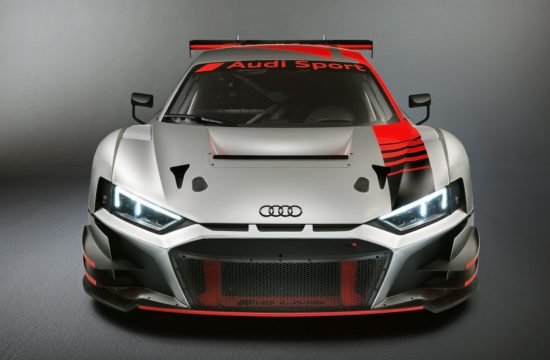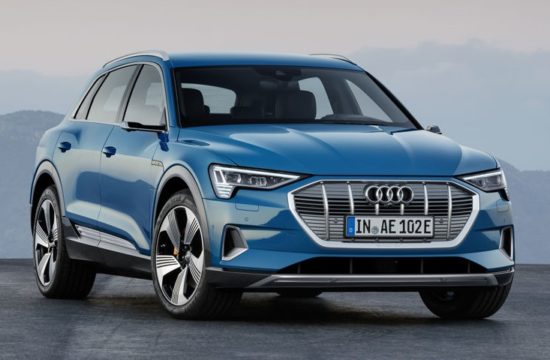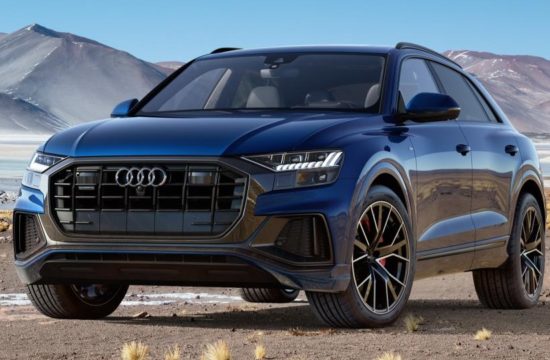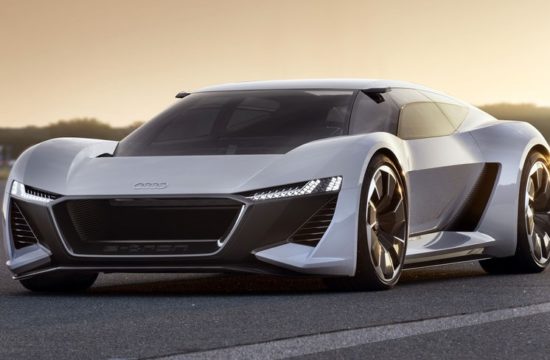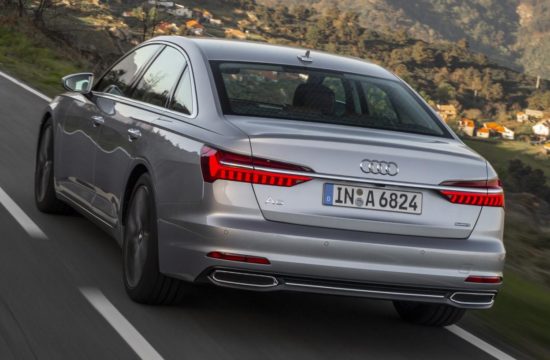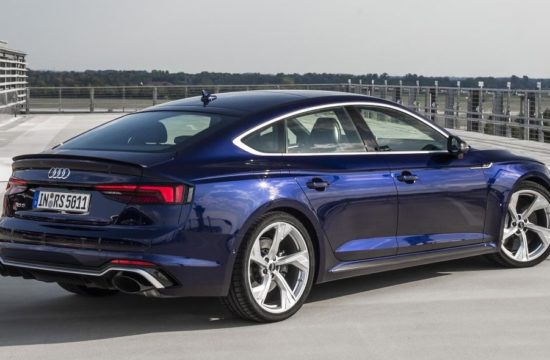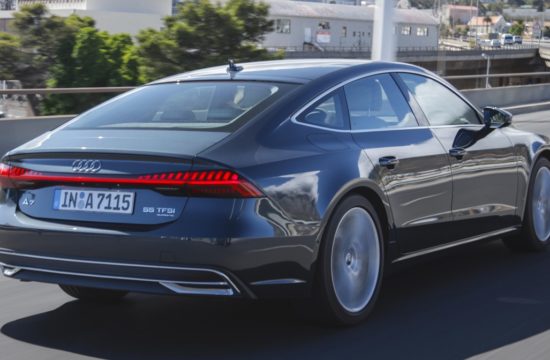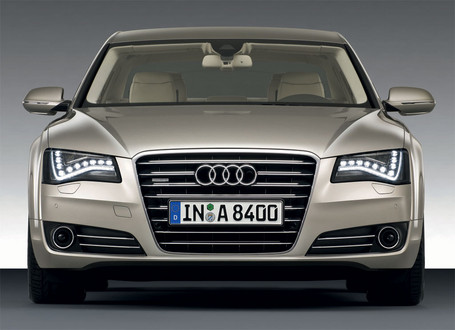
As we’ve reported earlier, at this year’s Geneva Motor Show Audi will be presenting a hybrid version of their newly introduced A8 flagship sedan. Now the company has released more details on the production A8 hybrid, revealing the fact that it’s powered by a 2.0 TFSI engine and an electric motor developing a combined 245 hp. Also at Geneva they will bring the A1 e-tron concept, which is based o the A1 city car but powered by Audi’s e-tron electric powertrain.
Audi A8 hybrid
Audi is displaying the A8 hybrid as an engineering study at the Geneva Motor Show. Its two power units – the 2.0 TFSI engine and the electric motor – have a combined output of 180 kW (245 hp) and a torque of 480 Nm (354.03 lb-ft). They give the car the same outstanding performance as a large-capacity conventional six-cylinder engine. This systematic downsizing demonstrates its fuel-consumption advantages in combination with the electric driveline: the average fuel consumption is only 6.2 l/100 km (37.94 US mpg), equivalent to CO2 emissions of 144 g/km (231.75 g/mile).
The Audi A8 hybrid uses the parallel hybrid configuration – a highly efficient principle that avoids unnecessary friction and power losses. The powerful electric motor integrated between the 155 kW (211 hp) four-cylinder petrol engine and the eight-speed tiptronic transmission can supply a further 33 kW (45 hp) to the driveline, as well as a vigorous 211 Nm (155.63 lb-ft) of torque.
The A8 design study is a full hybrid, that is to say the gasoline engine or the electric motor can propel it either separately or together. In the pure electric drive mode the car can reach 65 km/h (40.39 mph) and cover a distance of more than two kilometers (1.2 miles).
Audi A1 e-tron
Audi will be expanding its “e-tron” model family step by step: the A1 e-tron design study that the company is exhibiting at the Geneva Motor Show is an innovative Mega City Vehicle (MCV). Like the sports cars in the same family, it is electrically propelled and has a range of more than 50 kilometers (31 miles) in city traffic. With a peak power output of 75 kW (102 hp), the A1 e-tron is also fun to drive.
When the battery’s energy supply is exhausted, it is recharged by an exceptionally compact “range extender” consisting of a single-rotor Wankel engine and an electrical generator with a charge rating of up to 15 kW.
This device gives the A1 e-tron an additional range of 200 kilometers (124 miles). According to the draft standard for determining the fuel consumption of range-extender vehicles, the mean fuel consumption is 1.9 liters per 100 kilometers (123.8 US mpg), equivalent to CO2 emissions of only 45 g/km (72.42 g/mile).
n the words of Rupert Stadler, Chairman of the Board of Management of AUDI AG: “In future our customers will be able to choose from an increasingly broad range of driveline technologies. To accompany our high-efficiency TDI and FSI engines, we shall offer electric power in the best possible forms for a wide range of mobility needs. The hybrid driveline will be followed by all-electric vehicles.” The “e-tron” name will have an important part to play. “Just as “quattro” has become a synonym for all-wheel drive, so “e-tron” is to be the Audi brand name for electric mobility,” continues Stadler.When developing alternative drivelines, Audi is pursuing a strategy of introducing each technology where it is appropriate for specific model lines and markets, in other words where it will offer customers significant benefits.
“We regard the full hybrid as we know it today primarily as a very specific technology for reducing fuel consumption. In due course plug-in hybrids will demonstrate their strong points when drivers expect to cover longer distances in the pure electric mode, in combination with a conventional engine,” says Michael Dick, Member of the Board of Management for Technical Development at AUDI AG.
According to Dick: “The strength of the electric car clearly lies in the urban mobility area, where the demand for emission-free local transportation will strongly increase.” In addition to hybrids and electric cars, Audi continues to develop its long-term competence in the development of basic propulsion concepts using fuel cells and hydrogen as an energy carrier.

